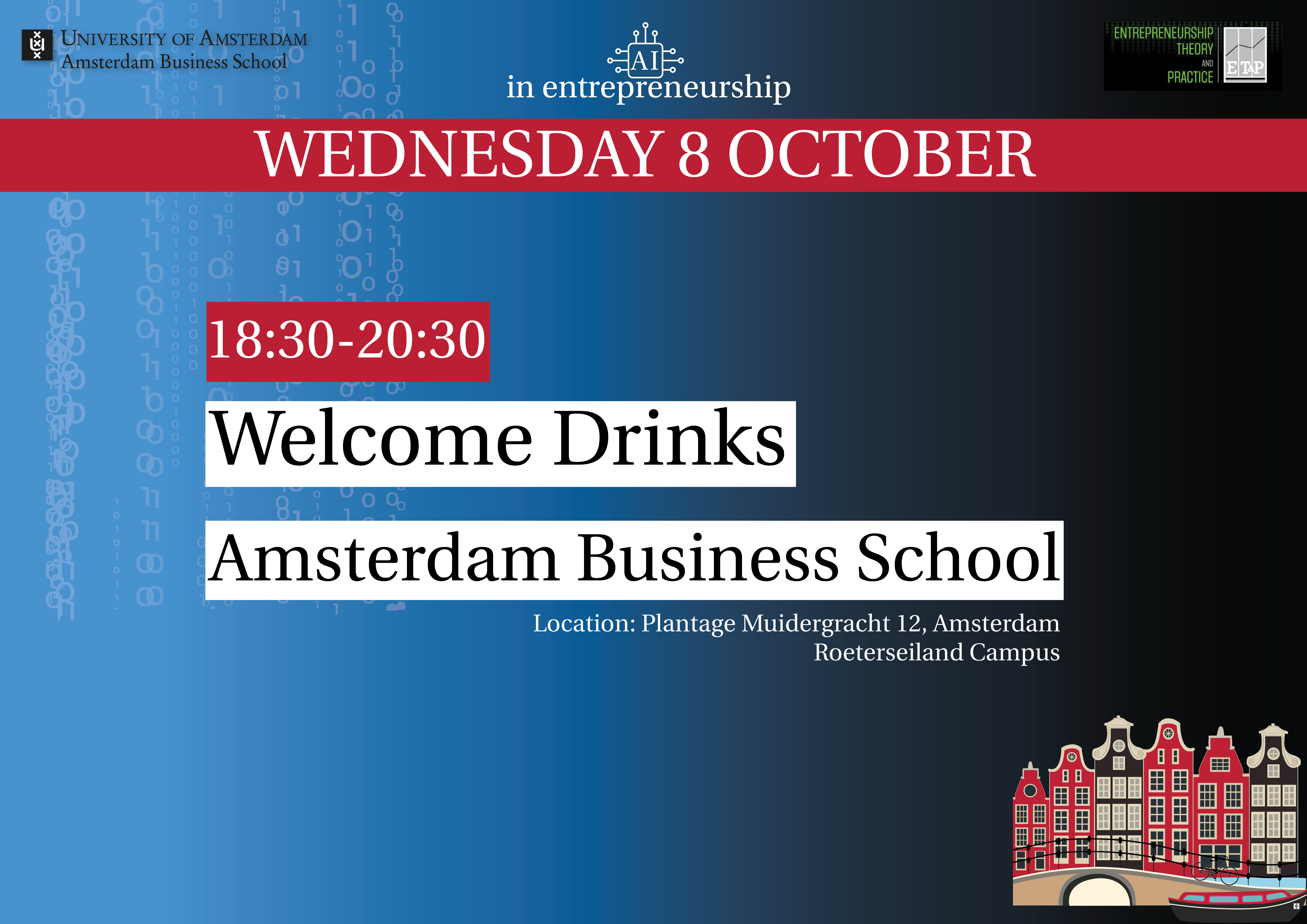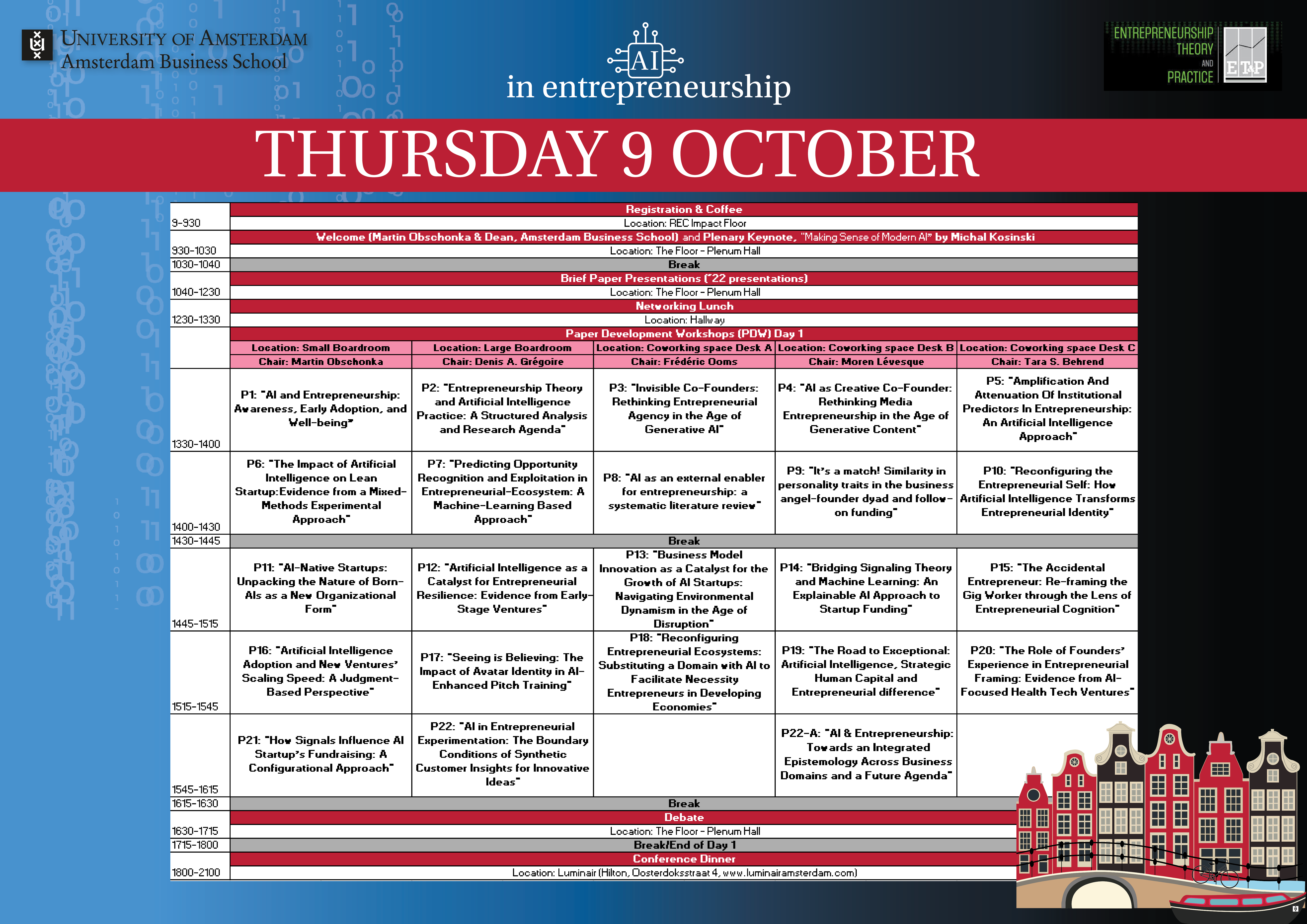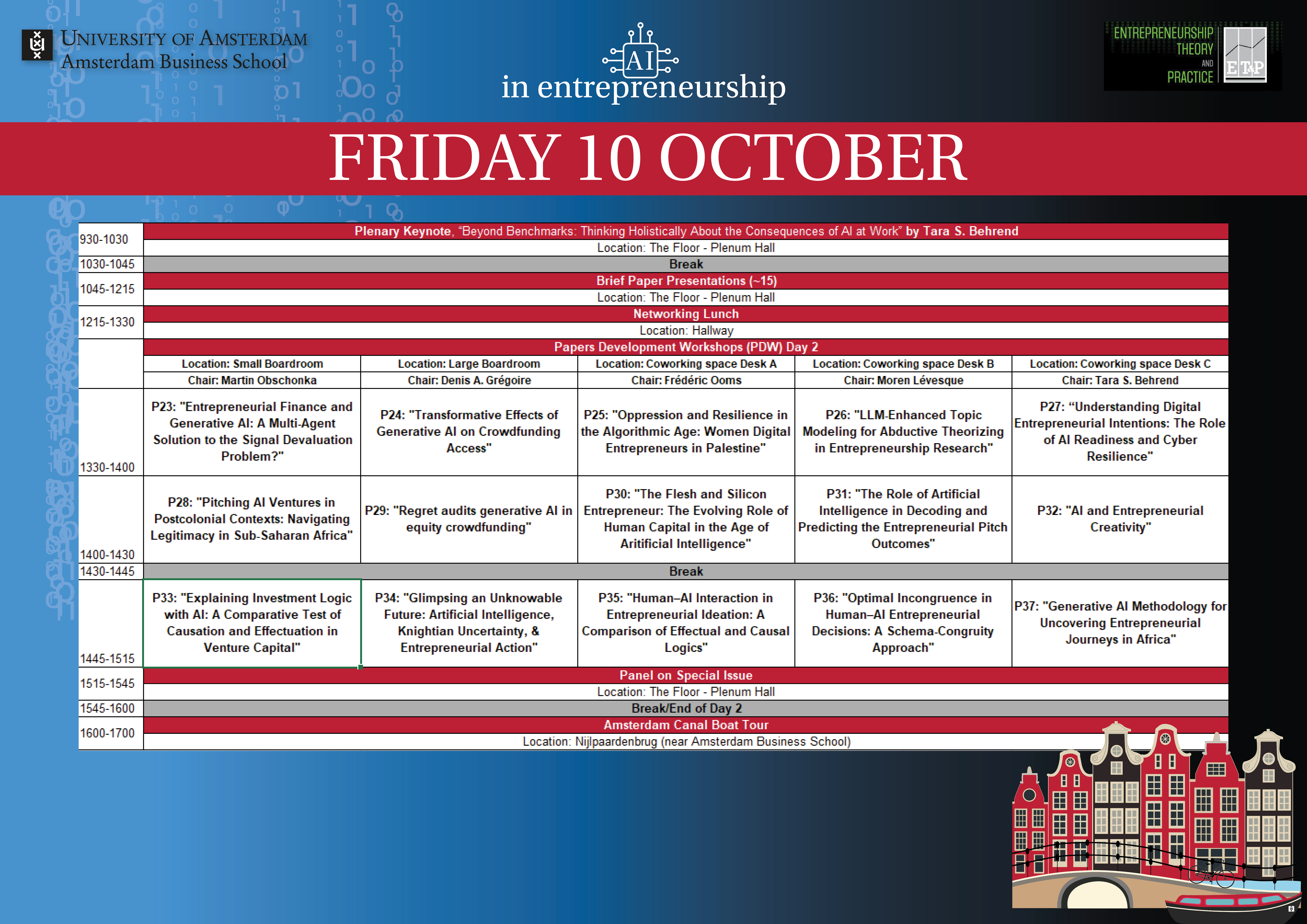
Program AI in Entrepreneurship

Below you'll find the program of the workshopdays. The location is: Roeterseiland Campus - Building JK


AI in Entrepreneurship
 Registration website for AI in Entrepreneurship
Registration website for AI in EntrepreneurshipAI in Entrepreneurshipconference@uva.nl
AI in Entrepreneurshipconference@uva.nlhttps://www.aanmelder.nl/aiinentrepreneurship
2025-10-08
2025-10-10
OfflineEventAttendanceMode
EventScheduled
AI in EntrepreneurshipAI in Entrepreneurship0.00EUROnlineOnly2019-01-01T00:00:00Z
To be announcedTo be announced